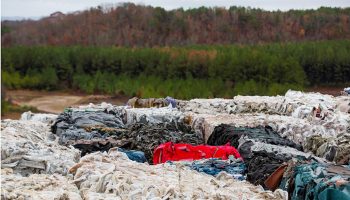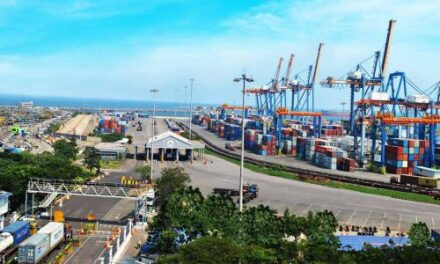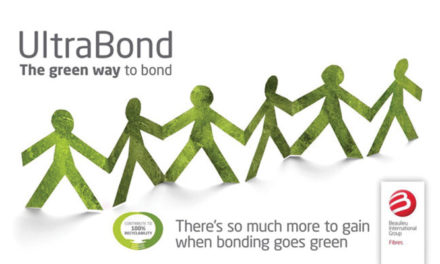 A new Changing Markets Foundation report has flagged up the extent of greenhouse gas (GHG) pollution within the carpet industry, as it’s found that – despite a shift from landfilling – 73 per cent of an estimated 256 mn m2 is instead incinerated. In contrast, only two per cent of carpet in than UK is recycled and less than one per cent is reused.
A new Changing Markets Foundation report has flagged up the extent of greenhouse gas (GHG) pollution within the carpet industry, as it’s found that – despite a shift from landfilling – 73 per cent of an estimated 256 mn m2 is instead incinerated. In contrast, only two per cent of carpet in than UK is recycled and less than one per cent is reused.
Changing Markets, along with the UK without Incineration Network (UKWIN) and Eunomia Consulting, has called for greater innovation from leading manufacturers to enable greater volumes of textile to be recycled, whilst lambasting the organisation Carpet Recycling UK (CRUK) for its failings in driving systemic change.
It insists, “Given that so little progress has been made over the past decade, it is time for the UK Government to introduce mandatory legislation for Extended Producer Responsibility (EPR) in the carpet industry.”
In the new report, Smoke and Mirrors: Exposing the reality of carpet ‘recycling’ in the UK, it’s estimated that hundreds of thousands of tonnes of carpet – enough to cover the English city of Birmingham – are either incinerated or landfilled per year. Approximately 400,000 tonne of carpet textiles are discarded each year, but despite an uptake in recycling efforts from across the broader textile industry, this particular sector has seemingly remained stagnant in the face of a mounting climate crisis.
More than a decade ago, Carpet Recycling UK, with a mission statement of diverting carpet from landfill, was launched in a bid to catalyse change to this end. Though the non-profit can report back that since 2007, volumes of carpet diverted from landfill have increased from two to 44 per cent, a majority of this diversion (73 per cent) is instead incinerated – releasing vast quantities of GHGs into the atmosphere.
Of the remaining 27 per cent, 22 is downcycled into equestrian product, two per cent is classified plastic recovery, two per cent is recovered fibre and only one per cent in reused.
With carpet production set to increase by three per cent year-on-year between 2019 and 2025, the report’s authors and keen to alert major stakeholders of the urgency with which they must react.
“The unpaid cost to society of the adverse climate impact of the CO2 released from burning carpets is estimated to be £16.5 mn in the UK in 2019,” the report says. “This cost is not being paid by the carpet industry, so society is in effect subsidising carpet incineration.”
The aforementioned sum of £16.5 mn is predicted based on the multiplication of volumes sent to landfill and the amount of CO2 released per tonne. On the basis that 1.89 tonne of CO2 is released per tonne of carpet incinerated, and with a BEIS Non-Traded Carbon estimate of £68.25 of CO2 carbon abatement, this in total values at £16.572m.








